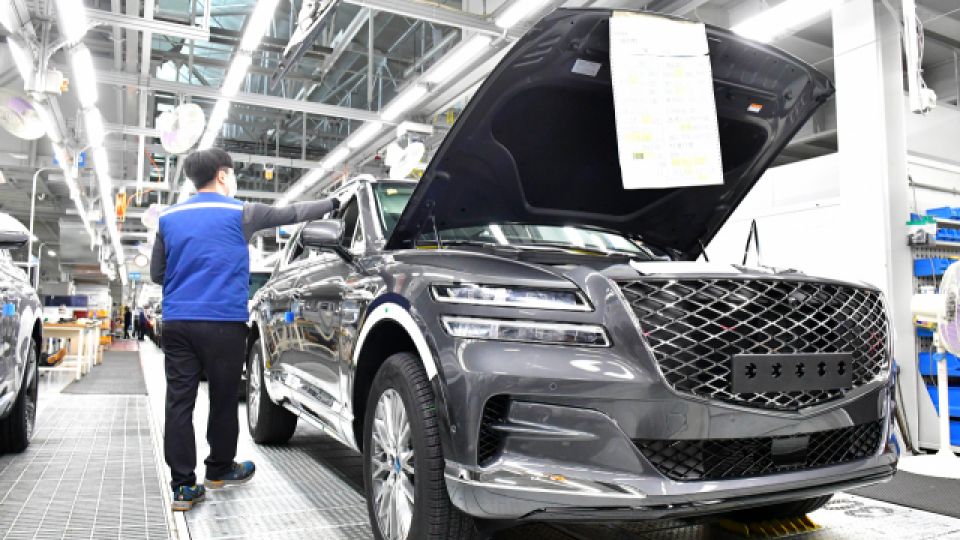October 17, 2022
SEOUL – South Korean automaker Hyundai Motor and its sister company Kia are expected to see continued record-high sales and profits in the third quarter, despite a market downturn and the impact of the industry’s low season.
According to market data on Sunday, Hyundai Motor is expected to announce around 36 trillion won ($25 billion) in sales in the July-September period, about a 25 percent increase on-year. Its quarterly operating profit would surpass 3 trillion won for the first time, jumping 105 percent on-year.
Kia is expected to post 22 trillion won in sales, about a 26 percent increase on-year, marking 2 trillion won in operating profit with an 81 percent jump over a year.
The third quarter is regarded as a low season for the carmaker, as employees take vacations for the summer and the Chuseok holiday. But Hyundai’s strategy in increasing the retail price of products has worked out, industry experts have said.
According to Daol Investment Group, Hyundai Motor’s automotive sales price was raised by 17 percent in the third quarter on-year, while it went up 20 percent for Kia cars over the same period. Sales booms for highly priced SUV models and products from luxury brand Genesis are also expected to have contributed to the third-quarter result.
Other have also said a rise in the Korean won-dollar exchange rate to above 1,400 won is also offering Korean automakers benefits, as almost 60 percent of their cars manufactured in Korea are for export.
It is estimated that a 1 percent increase in the won-dollar exchange rate would lead to an increase of approximately 50 billion won in operating profit for Hyundai Motor and a 30 billion won increase for Kia.
Considering that the exchange rate average rose by 15 percent during in the third quarter from a year prior, the Korean duo would see an increase of at least 1.2 trillion won in sales from July to September, just from the rise in exchange rate.
The company has also saved a lot of money during the third quarter by lowering sales incentives it pays to dealers in the US.
Amid a supply crunch of automotive semiconductors over logistics issues, Hyundai Motor Group has cut the original $500 incentive per vehicle by 25 percent, although it varies based on the model.
Market experts said that the impact of the new US electric vehicle tax breaks that removed subsidies for foreign carmakers would become noticeable at earliest from the first quarter next year.
Considering that the US government will likely announce detailed guidelines of the law after the November midterm elections, the widely expected negative impact of the Inflation Reduction Act on Korean carmakers’ global sales will translate into a sales dip from next year, experts said.
“The continuing exchange rate hike has merits and demerits for the carmaker. The amount the carmaker pays for auto parts imports are rapidly increasing,” said an industry insider.
Hyundai Motor Group is expected to announce it third-quarter result in the last week of October.


